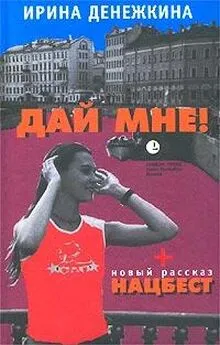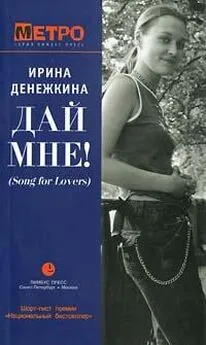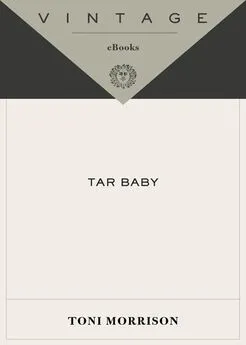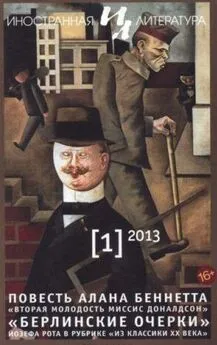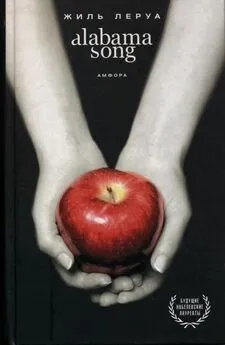Toni Morrison - Song of Solomon
- Название:Song of Solomon
- Автор:
- Жанр:
- Издательство:неизвестно
- Год:неизвестен
- ISBN:нет данных
- Рейтинг:
- Избранное:Добавить в избранное
-
Отзывы:
-
Ваша оценка:
Toni Morrison - Song of Solomon краткое содержание
Song of Solomon - читать онлайн бесплатно полную версию (весь текст целиком)
Интервал:
Закладка:
He walked there now—strutted is the better word, for he had a high behind and an athlete’s stride—thinking of names. Surely, he thought, he and his sister had some ancestor, some lithe young man with onyx skin and legs as straight as cane stalks, who had a name that was real. A name given to him at birth with love and seriousness. A name that was not a joke, nor a disguise, nor a brand name. But who this lithe young man was, and where his cane-stalk legs carried him from or to, could never be known. No. Nor his name. His own parents, in some mood of perverseness or resignation, had agreed to abide by a naming done to them by somebody who couldn’t have cared less. Agreed to take and pass on to all their issue this heavy name scrawled in perfect thoughtlessness by a drunken Yankee in the Union Army. A literal slip of the pen handed to his father on a piece of paper and which he handed on to his only son, and his son likewise handed on to his; Macon Dead who begat a second Macon Dead who married Ruth Foster (Dead) and begat Magdalene called Lena Dead and First Corinthians Dead and (when he least expected it) another Macon Dead, now known to the part of the world that mattered as Milkman Dead. And as if that were not enough, a sister named Pilate Dead, who would never mention to her brother the circumstances or the details of this foolish misnaming of his son because the whole thing would have delighted her. She would savor it, maybe fold it too in a brass box and hang it from her other ear.
He had cooperated as a young father with the blind selection of names from the Bible for every child other than the first male. And abided by whatever the finger pointed to, for he knew every configuration of the naming of his sister. How his father, confused and melancholy over his wife’s death in childbirth, had thumbed through the Bible, and since he could not read a word, chose a group of letters that seemed to him strong and handsome; saw in them a large figure that looked like a tree hanging in some princely but protective way over a row of smaller trees. How he had copied the group of letters out on a piece of brown paper; copied, as illiterate people do, every curlicue, arch, and bend in the letters, and presented it to the midwife.
“That’s the baby’s name.”
“You want this for the baby’s name?”
“I want that for the baby’s name. Say it.”
“You can’t name the baby this.”
“Say it.”
“It’s a man’s name.”
“Say it.”
“Pilate.”
“What?”
“Pilate. You wrote down Pilate.”
“Like a riverboat pilot?”
“No. Not like no riverboat pilot. Like a Christ-killing Pilate. You can’t get much worse than that for a name. And a baby girl at that.”
“That’s where my finger went down at.”
“Well, your brain ain’t got to follow it. You don’t want to give this motherless child the name of the man that killed Jesus, do you?”
“I asked Jesus to save me my wife.”
“Careful, Macon.”
“I asked him all night long.”
“He give you your baby.”
“Yes. He did. Baby name Pilate.”
“Jesus, have mercy.”
“Where you going with that piece of paper?”
“It’s going back where it came from. Right in the Devil’s flames.”
“Give it here. It come from the Bible. It stays in the Bible.”
And it did stay there, until the baby girl turned twelve and took it out, folded it up into a tiny knot and put it in a little brass box, and strung the entire contraption through her left earlobe. Fluky about her own name at twelve, how much more fluky she’d become since then Macon could only guess. But he knew for certain that she would treat the naming of the third Macon Dead with the same respect and awe she had treated the boy’s birth.
Macon Dead remembered when his son was born, how she seemed to be more interested in this first nephew of hers than she was in her own daughter, and even that daughter’s daughter. Long after Ruth was up and about, as capable as she ever would be—and that wasn’t much—of running the house again, Pilate continued to visit, her shoelaces undone, a knitted cap pulled down over her forehead, bringing her foolish earring and sickening smell into the kitchen. He had not seen her since he was sixteen years old, until a year before the birth of his son, when she appeared in his city. Now she was acting like an in-law, like an aunt, dabbling at helping Ruth and the girls, but having no interest in or knowledge of decent housekeeping, she got in the way. Finally she just sat in a chair near the crib, singing to the baby. That wasn’t so bad, but what Macon Dead remembered most was the expression on her face. Surprise, it looked like, and eagerness. But so intense it made him uneasy. Or perhaps it was more than that. Perhaps it was seeing her all those years after they had separated outside that cave, and remembering his anger and her betrayal. How far down she had slid since then. She had cut the last thread of propriety. At one time she had been the dearest thing in the world to him. Now she was odd, murky, and worst of all, unkempt. A regular source of embarrassment, if he would allow it. But he would not allow it.
Finally he had told her not to come again until she could show some respect for herself. Could get a real job instead of running a wine house.
“Why can’t you dress like a woman?” He was standing by the stove. “What’s that sailor’s cap doing on your head? Don’t you have stockings? What are you trying to make me look like in this town?” He trembled with the thought of the white men in the bank—the men who helped him buy and mortgage houses—discovering that this raggedy bootlegger was his sister. That the propertied Negro who handled his business so well and who lived in the big house on Not Doctor Street had a sister who had a daughter but no husband, and that daughter had a daughter but no husband. A collection of lunatics who made wine and sang in the streets “like common street women! Just like common street women!”
Pilate had sat there listening to him, her wondering eyes resting on his face. Then she said, “I been worried sick about you too, Macon.”
Exasperated, he had gone to the kitchen door. “Go ‘head, Pilate. Go on now. I’m on the thin side of evil and trying not to break through.”
Pilate stood up, wrapped her quilt around her, and with a last fond look at the baby, left through the kitchen door. She never came back.
When Macon Dead got to the front door of his office he saw a stout woman and two young boys standing a few feet away. Macon unlocked his door, walked over to his desk, and settled himself behind it. As he was thumbing through his accounts book, the stout woman entered, alone.
“Afternoon Mr. Dead, sir. I’m Mrs. Bains. Live over at number three on Fifteenth Street.”
Macon Dead remembered—not the woman, but the circumstances at number three. His tenant’s grandmother or aunt or something had moved in there and the rent was long overdue.
“Yes, Mrs. Bains. You got something for me?”
“Well, that’s what I come to talk to you about. You know Cency left all them babies with me. And my relief check ain’t no more’n it take to keep a well-grown yard dog alive—half alive, I should say.”
“Your rent is four dollars a month, Mrs. Bains. You two months behind already.”
“I do know that, Mr. Dead, sir, but babies can’t make it with nothing to put in they stomach.”
Their voices were low, polite, without any hint of conflict.
“Can they make it in the street, Mrs. Bains? That’s where they gonna be if you don’t figure out some way to get me my money.”
“No, sir. They can’t make it in the street. We need both, I reckon. Same as yours does.”
“Then you better rustle it up, Mrs. Bains. You got till”—he swiveled around to consult the calendar on the wall—“till Saturday coming. Saturday, Mrs. Bains. Not Sunday. Not Monday. Saturday.”
If she had been younger and had more juice, the glitter in her eyes would have washed down onto her cheeks. New, at her time of life, it simply gleamed. She pressed the flat of her hand on Macon Dead’s desk and, holding the gleam steady in her eyes, pushed herself up from the chair. She turned her head a little to look out the plate-glass window, and then back at him.
“What’s it gonna profit you, Mr. Dead, sir, to put me and them children out?”
“Saturday, Mrs. Bains.”
Lowering her head, Mrs. Bains whispered something and walked slowly and heavily from the office. As she closed the door to Sonny’s Shop, her grandchildren moved out of the sunlight into the shadow where she stood.
“What he say, Granny?”
Mrs. Bains put a hand on the taller boy’s hair and fingered it lightly, absently searching with her nails for tetter spots.
“He must’ve told her no,” said the other boy.
“Do we got to move?” The tall boy tossed his head free of her fingers and looked at her sideways. His cat eyes were gashes of gold.
Mrs. Bains let her hand fall to her side. “A nigger in business is a terrible thing to see. A terrible, terrible thing to see.”
The boys looked at each other and back at their grandmother. Their lips were parted as though they had heard something important.
When Mrs. Bains closed the door, Macon Dead went back to the pages of his accounts book, running his fingertips over the figures and thinking with the unoccupied part of his mind about the first time he called on Ruth Foster’s father. He had only two keys in his pocket then, and if he had let people like the woman who just left have their way, he wouldn’t have had any keys at all. It was because of those keys that he could dare to walk over to that part of Not Doctor Street (it was still Doctor Street then) and approach the most important Negro in the city. To lift the lion’s paw knocker, to entertain thoughts of marrying the doctor’s daughter was possible because each key represented a house which he owned at the time. Without those keys he would have floated away at the doctor’s first word: “Yes?” Or he would have melted like new wax under the heat of that pale eye. Instead he was able to say that he had been introduced to his daughter, Miss Ruth Foster, and would appreciate having the doctor’s permission to keep her company now and then. That his intentions were honorable and that he himself was certainly worthy of the doctor’s consideration as a gentleman friend for Miss Foster since, at twenty-five, he was already a colored man of property.
“I don’t know anything about you,” the doctor said, “other than your name, which I don’t like, but I will abide by my daughter’s preference.”
In fact the doctor knew a good deal about him and was more grateful to this tall young man than he ever allowed himself to show. Fond as he was of his only child, useful as she was in his house since his wife had died, lately he had begun to chafe under her devotion. Her steady beam of love was unsettling, and she had never dropped those expressions of affection that had been so lovable in her childhood. The good-night kiss was itself a masterpiece of slow-wittedness on her part and discomfort on his. At sixteen, she still insisted on having him come to her at night, sit on her bed, exchange a few pleasantries, and plant a kiss on her lips. Perhaps it was the loud silence of his dead wife, perhaps it was Ruth’s disturbing resemblance to her mother. More probably it was the ecstasy that always seemed to be shining in Ruth’s face when he bent to kiss her—an ecstasy he felt inappropriate to the occasion.
None of that, of course, did he describe to the young man who came to call. Which is why Macon Dead still believed the magic had lain in the two keys.
Читать дальшеИнтервал:
Закладка:

